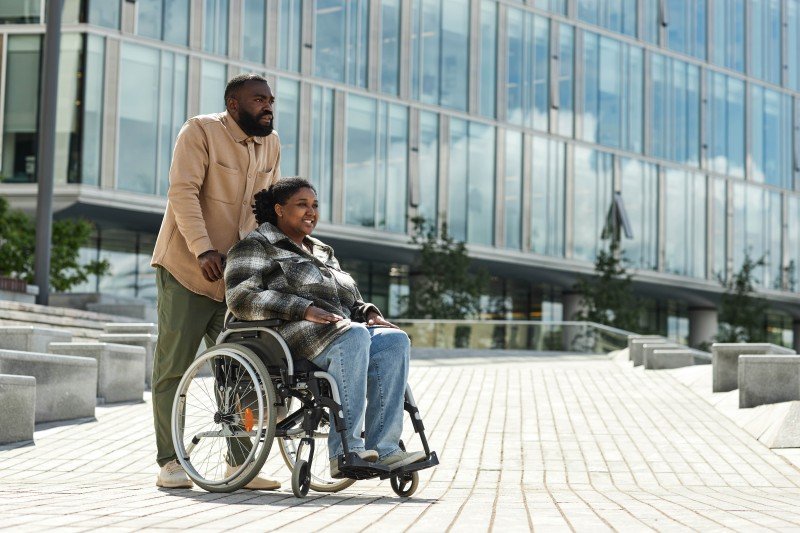Mobility Scooters in the UK: A Comprehensive Guide
In the United Kingdom, mobility scooters are becoming an increasingly popular methods of transportation for people with mobility concerns, supplying them with the freedom to navigate their neighborhoods separately. These motorized cars are created to assist those who have trouble strolling or utilizing a manual wheelchair, using a practical and comfy service for day-to-day travel. This article looks into the world of mobility scooters in the UK, exploring their benefits, legal requirements, and how to pick the best one.
Intro to Mobility Scooters
A mobility scooter is a battery-powered automobile that usually has 3 or four wheels, a seat for the driver, and handlebars for steering. They are designed to be easy to use and keep, making them ideal for older adults and individuals with disabilities who wish to maintain their independence. Mobility scooters come in various sizes and designs, each dealing with various requirements and preferences.
Advantages of Mobility Scooters
- Increased Independence: mobility scooter uk scooters permit users to travel longer ranges without the physical pressure associated with strolling or using a manual wheelchair. This independence can substantially improve their quality of life.
- Cost-Effective: Compared to other motorized vehicles, mobility scooters are relatively cost effective. They also require very little maintenance, which can conserve users a great deal of money in the long run.
- Alleviate of Use: Most mobility scooters are developed to be easy to use, with intuitive controls and comfortable seating. They are frequently lightweight and can be easily taken apart for transport.
- Enhanced Social Interaction: By allowing users to venture out more regularly, mobility scooters can help in reducing feelings of isolation and loneliness, fostering social connections and community involvement.
- Boosted Safety: Mobility scooters are geared up with features such as headlights, brake lights, and horns, making them safer for usage on roads and in public spaces.
Types of Mobility Scooters
When picking a mobility scooter, it's important to think about the type that best fits your needs. Here are the main types offered in the UK:
Class 2 Mobility Scooters:
- Speed: Limited to 4 miles per hour (6.4 km/h)
- Usage: Suitable for pavements and pedestrian locations
- Functions: Compact and light-weight, collapsible for easy transport
Class 3 Mobility Scooters:
- Speed: Can rise to 8 miles per hour (12.9 km/h)
- Usage: Suitable for both pavements and roadways, offered they are registered and insured
- Functions: Sturdier construct, frequently with advanced features like suspension and bigger batteries
Sturdy Mobility Scooters:
- Capacity: Designed to support users weighing up to 400 pounds (181 kg)
- Usage: Ideal for those who require a robust and long lasting scooter
- Functions: Reinforced frame, broader seat, and improved stability
Off-Road Mobility Scooters:
- Terrain: Built to deal with rough and unequal surfaces
- Usage: Suitable for users who take pleasure in outside activities like treking or fishing
- Functions: All-terrain tires, high ground clearance, and effective motors
Legal Requirements for Mobility Scooters in the UK
Using a mobility scooter in the UK includes specific legal responsibilities. Here are the bottom lines to think about:
- Registration and Insurance:
- Class 2 Scooters: No registration or insurance required
- Class 3 Scooters: Must be signed up with the DVLA, guaranteed, and display a valid MOT certificate if used on roads
- Motorist Requirements:
- Age: Users should be at least 14 years of ages
- Health: No particular health conditions are needed, but users ought to have the ability to control the scooter securely
- Speed Limits:
- Class 2 Scooters: 4 mph (6.4 km/h) on pavements
- Class 3 Scooters: 8 miles per hour (12.9 km/h) on roads, 4 mph on pavements
- Safety Equipment:
- Lights: All scooters used on roads must have front and rear lights, indicators, and a horn
- Reflectors: Required for usage on roads, specifically during low exposure conditions
- Tax and Parking:
- Tax: Class 3 scooters are exempt from car tax
- Parking: Users can park in designated disabled parking spaces with a valid Blue Badge
How to Choose the Right Mobility Scooter
Choosing the best mobility scooter involves considering several aspects:
Mobility Needs:
- Range: How far do you require to travel?
- Terrain: Will you be utilizing the scooter on pavements, roadways, or off-road?
- Weight Capacity: What is the maximum weight the scooter requires to support?
Budget:
- Initial Cost: Mobility scooters can vary from a few hundred to numerous thousand pounds
- Ongoing Costs: Consider the expense of batteries, upkeep, and insurance
Features:
- Comfort: Look for a scooter with a comfy seat and adjustable controls
- Storage: Some scooters provide additional storage for shopping bags or personal products
- Portability: If you require to carry the scooter, select a design that is light-weight and foldable
Track record and Support:
- Brand: Research trusted brand names known for their quality and dependability
- Guarantee: Check the warranty period and what it covers
- Consumer Support: Ensure the maker or seller provides excellent consumer support and service
FAQs About Mobility Scooters in the UK
Do I need a license to drive a mobility scooter?
- No, you do not need a driving license to operate a mobility scooter in the UK. Nevertheless, Class 3 scooters should be signed up with the DVLA and guaranteed if used on roadways.
Can I utilize a mobility scooter on the pavement?

- Yes, both Class 2 and Class 3 scooters are enabled on pavements, but Class 3 scooters are limited to 4 miles per hour.
Exist any restrictions on where I can use a mobility scooter?
- Class 2 scooters are limited to pavements and pedestrian areas. Class 3 scooters can be utilized on roads, however they need to satisfy particular legal requirements.
How do I preserve my mobility scooter?
- Regular upkeep includes inspecting battery levels, tire pressure, and brake functionality. It's likewise essential to clean the scooter regularly and save it in a dry place.
Can I get a mobility scooter through the NHS?
- The NHS provides mobility scooters through the Disabled Living Allowance (DLA) or Personal Independence Payment (PIP). You can likewise buy or lease a scooter from a private seller.
Is a mobility scooter tax-deductible?
- Sometimes, the cost of a mobility scooter can be declared as a medical expenditure. Speak with a monetary consultant for specific assistance.
Tips for Using a Mobility Scooter Safely
- Use Appropriate Clothing:
- Wear comfortable and weather-appropriate clothes. Consider wearing a high-visibility coat when using the scooter on roads.
- Preserve the Scooter:
- Regularly inspect the battery, tires, and brakes to make sure the scooter is in excellent working condition.
- Follow Traffic Rules:
- Obey traffic indications and signals, and utilize designated pedestrian and cycle courses when possible.
- Use Safety Equipment:
- Always use the headlights, brake lights, and horn, particularly during low visibility conditions.
- Be Mindful of Others:
- Be polite to pedestrians and other roadway users. Decrease when approaching crowded areas.
Mobility scooters are a valuable tool for individuals in the UK who face mobility challenges. They offer a series of advantages, from increased self-reliance to enhanced security, making them a popular choice for older grownups and people with disabilities. By understanding the different types of scooters, legal requirements, and how to select the best one, users can enjoy the flexibility and convenience these automobiles supply. Whether for everyday errands or recreation, a mobility scooter can substantially enhance the lifestyle for many individuals.
Extra Resources
- DVLA Website: For information on signing up and guaranteeing a Class 3 mobility scooter
- Age UK: Offers suggestions and support for older grownups thinking about a mobility scooter
- Disability Rights UK: Provides guidance on accessing mobility scooters through monetary assistance programs
By putting in the time to research and choose the best mobility scooter, users can take pleasure in greater self-reliance and a more active way of life.







